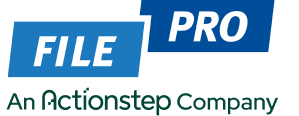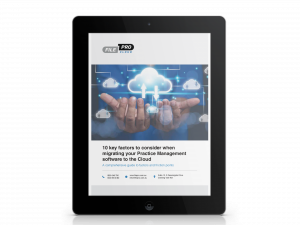The past: selling information
We all know the image: pale, male, stale lawyer sitting behind an antique table with some beautiful leather-bound books arranged neatly in the background. The message is clear. “I know what is in these books. It is the knowledge you need. I will provide it to you, for a fee.”
The business model was pretty simple. We lawyers were the repositories of specialised knowledge. If we were paid the right price, we would deliver up our knowledge.
The present: selling access
I say: that’s all changed.
In the bad old days, our knowledge was all we thought we had. We had to keep our barriers up to make sure knowledge was scarce so that when we provided it, it was valuable.
Then the internet came to have its say.
Initially, sporadic blog posts from forward-thinking firms, and perhaps an email newsletter here or there were the first steps lawyers took in sharing their knowledge.
Then, access to online resources like AUSTLII democratised and “search engine-ified” every piece of law affecting your client base. Any average Joe with a smartphone could quickly put their hands on almost everything in those leatherbound books.
And so if the model of selling information has been disrupted, what is the new zeitgeist? What are we now selling?
I say the answer is: access. Access to us as legal experts and professionals? Sure. Access to us as personal and commercial consultants? Possibly. Access to us as living breathing people? Just maybe.
Because if the sharing of information has now been democratised, and we can no longer sell the information we keep in those leatherbound books, it is incumbent upon us all to build relationships with those we serve.
Selling access: building a brand
If we accept that we are now in the business of selling access, then the next question that arises is: how?
The answer is: leveraging the internet to build a brand.
And not necessarily a “personal brand” in the sense of a beautiful, young person who might sell you weight loss tea on Instagram. Or a brand that might require hundreds of thousands of dollars of investment in consultants. Rather, a brand or, if you prefer, “reputation” ie what people think about you when you’re not around.
Brand is, as the wonderful Ian Whitworth taught us in his book Undisruptable, the only thing that saves us from having to be the cheapest of six quotes. It is – I say – the key to success for a profession that can no longer sell information.
But, again, how to build brand? The answer – happily – is quite literally at our fingertips. Reach into our back pockets, or under our couch cushions, and we will each find a supercomputer giving us access to every single potential client and possible referral source we could imagine.
We simply need reach out to them in order to start selling access.
Building a brand that enables you to reach your potential client and referrer base is the path I propose.
Where can I build the brand?
Each of the locations on the contemporary internet grants us an opportunity to build a brand, and so build lasting relationships.
Whether that is finding someone in a related industry with a finely honed Linkedin search, joining a vibrant conversation about law reform on Twitter, or making sure your aesthetics are just right for the Pinterest crowd – there are people out there for you to form relationships with.
The question then becomes: are you ready and willing to form those relationships with them?
Taking the leap…
This is perhaps the greatest challenge. It takes a bit of gumption to turn your phone camera around on yourself, share what you know about a topic and hope that someone, somewhere out there likes it.
But – hey – now that you’re no longer in the business of selling information, what choice do you really have?
About the Author
James d’Apice is a commercial disputes lawyer with the firm, Chamberlains. Apart from assisting his clients with their needs both in and out of Court, James publishes summaries of recent cases online. To learn more or keep in contact with James, just search “Coffee and a Case Note” in your favourite online platform.


